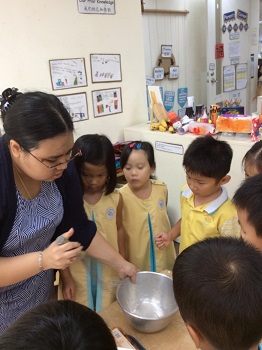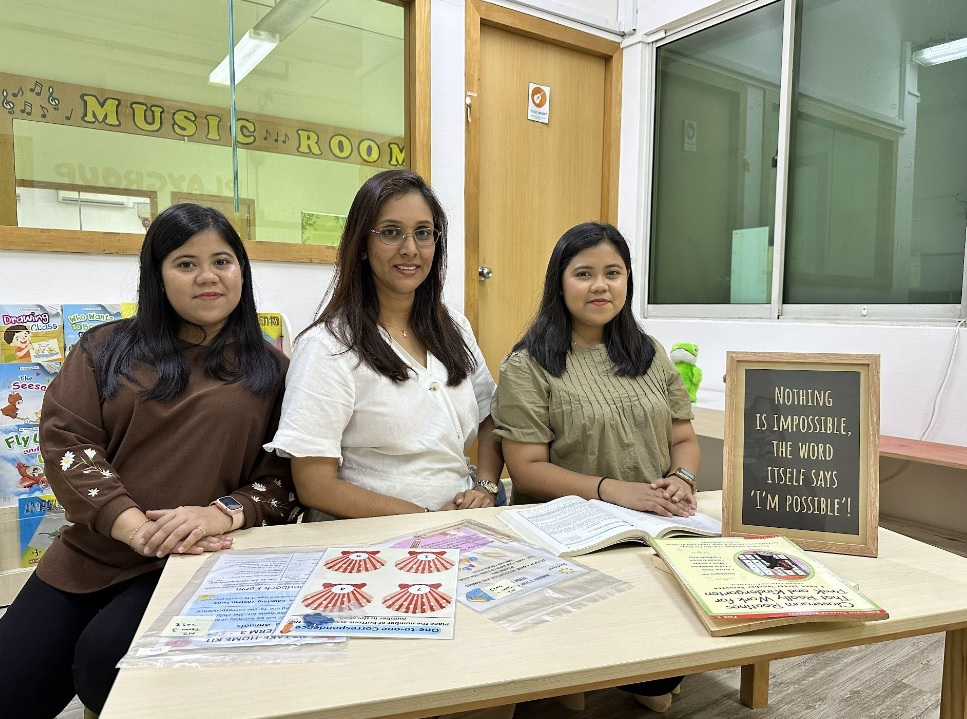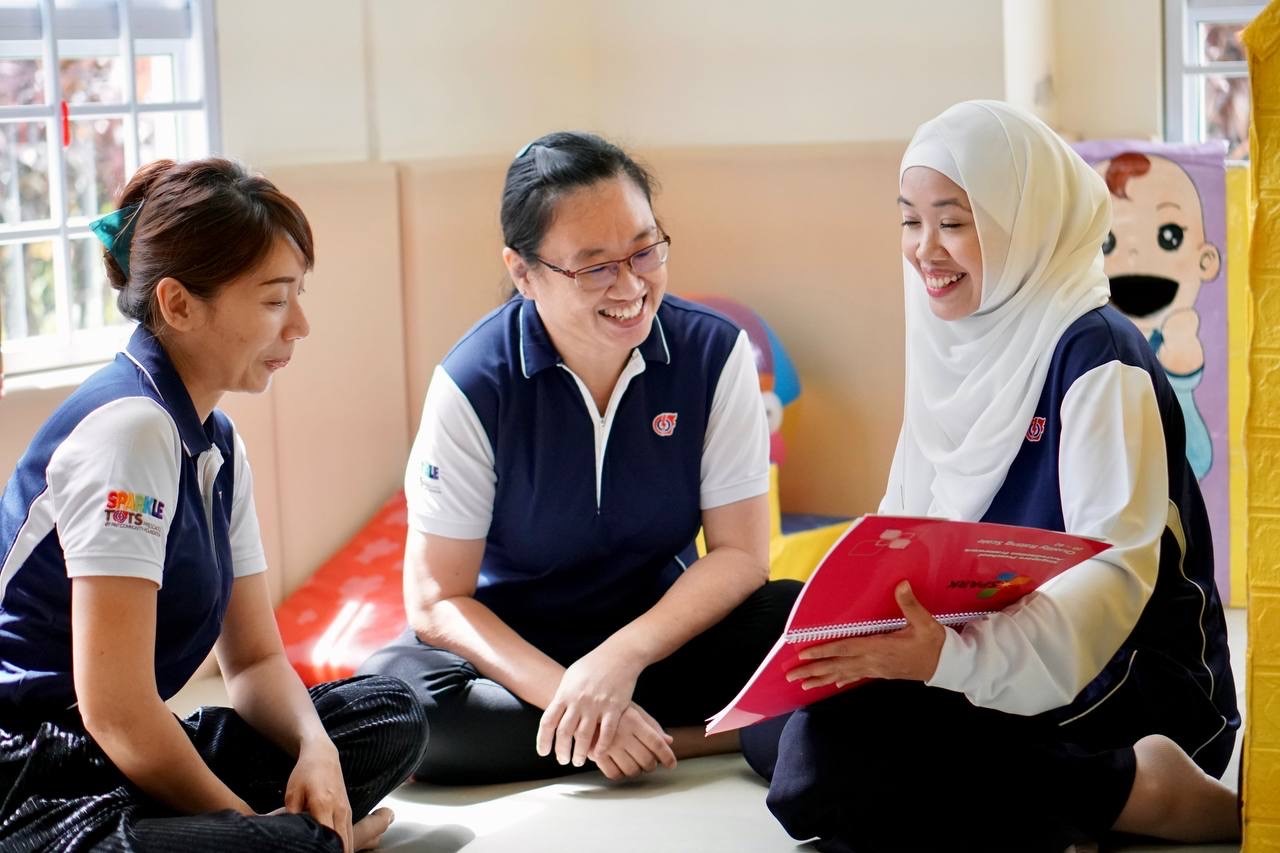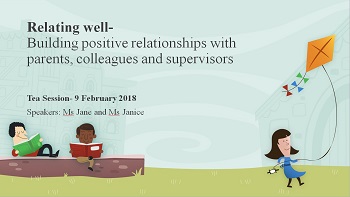Relating Well: Building Positive Relationships with Parents, Colleagues and Supervisors


As a new early childhood educator, establishing strong relationships with fellow colleagues and parents of your preschoolers can help create a positive and supportive work environment for yourself. Senior early childhood educators, Ms Jane Mayriel Singh and Ms Janice Ong share their experiences and insights.
 |  |
Jane and Janice
Starting out as a fresh early childhood (EC) educator can be exciting yet challenging. It is important to establish strong and supportive relationships at work. For many new EC educators, they may have difficulties fitting into the new work environment and building a trustful relationship with parents and colleagues. Senior early childhood educators, Ms Jane Mayriel Singh and Ms Janice Ong, shared similar concerns during their first foray into the early childhood sector.
WORKING WITH PARENTS
“I remember that my biggest fear as a novice teacher was communicating with parents. I wanted to present myself as professional and knowledgeable. However, I was worried that the opposite would be true,” shared Jane, who is currently a Senior English Language Teacher with The Little-Skool House International (By-The-Vista).
With more than 10 years of EC experience under her belt, Janice, a Senior Kindergarten Teacher with The Ascension Kindergarten, seconds Jane’s fears, “Being young (back then), I realised that many parents did not take me seriously. However, over time, they discovered that I was capable of doing my job well and learnt to trust me more.”
To Jane and Janice, building a relationship with parents is about helping them to understand that EC educators really want to give a good start for their child. Communication is essential to kick-start the relationship building process.
 |  |
“When parents understand the heart you have for their children, they trust and are assured that you also want what is best for their child. When you need help from them, they will cooperate and work closely with you. They will be more than willing to contribute and have a role in their child’s education in a way that is supportive of the school’s curriculum and policies,” Janice reassures.
When it comes to managing parents, Jane’s advice for new EC educators is not to be afraid of taking the initiative to reach out to parents. Educators need to be open to sharing with parents not just their concerns for the children, but also the children’s accomplishments. Complementing Jane’s advice, Janice added that it is also important for educators to listen to the parents. “Parents do have lots to share about their child and may even reveal tips on how to relate well with their little ones,” she adds.
For new EC educators who are fearful of approaching parents, Jane recommends a practical strategy imparted to her by her mentor when she first started out, “Start small and form connections with a few parents each week. This can help you grow confidence in approaching parents.”
BUILDING RELATIONSHIPS WITH FELLOW EDUCATORS
Learning how to navigate relationships with colleagues is another big concern for new EC educators. To Jane and Janice, colleagues are like family and are excellent pillars of support at work. Hence, it is essential to establish good relationships with them.

As Janice highlighted, “(Colleagues) help contribute to the positive work environment and your ability to perform as a teacher. They help you grow as a teacher. When you face difficulties at work, they are the best people to encourage and support you. Apart from that, they are an excellent form of resource! They have wells of knowledge and experience. When you engage in conversations and collaborations with them, that's when you learn how to manage the demands of work well.”

Jane also encourages new EC educators to listen and respect different points of view. This is important to nurture positive relationships with colleagues and parents alike. “(During meetings), rephrasing their point and asking follow up questions are some ways to show that you are making an effort to understand them.”
Both Jane and Janice are mindful that relationship building and communication go both ways. Senior EC educators can also play a part in supporting their new colleagues in integrating into the workplace.

“Always be kind, patient and gracious,” Janice quips. “Think back on your first day of work and how you felt – who made you feel welcomed and who didn’t. Be the person who makes the journey of a new EC educator meaningful and pleasant.”
“Be empathetic to your new colleagues and make them feel welcomed. A new teacher would feel valued when their opinions are sought during decision making,” echoes Jane. “Even something simple like having a meal together and listening to their fears and aspirations can set the tone for building a positive relationship.”
7 HABITS OF HIGHLY EFFECTIVE EARLY CHILDHOOD EDUCATORS
The two educators observe that many issues faced at work are a result of a lack of communication skills and negative attitudes. In the long run, these will adversely affect the work culture and demoralise the individual.
However, they strongly believe that these can be overcome by putting in place strategies that promote positivity and empowerment. They found Stephen R Covey’s “Reactive and Proactive Language” and “Circle of Influence/ Concern” useful in identifying strategies to overcome their concerns in relationship building and management at the workplace. Both concepts are mentioned in Covey’s book ‘7 Habits of Highly Effective People’.
According to Covey, being a ‘proactive person’ means to take responsibility for your life and recognise that you can choose your own behaviour. This is opposed to being a ‘reactive person’ who often finds external sources to blame for his/ her behaviour. Proactive people focus on things within their ‘Circle of Influence’, which include things they can control and address. In contrast, reactive people focus on things within their ‘Circle of Concern’ – things they have little or no control over.

Says Jane, “Stephen Covey’s theory emphasises on the use of proactive language such as ‘I will’, ‘I choose’ and ‘I can control my feelings’. New EC educators may face challenges as they adapt to their new roles and responsibilities. Eliminating concerns beyond their control and focusing on those that they can control will reduce negative feelings. Using proactive phrasing helps to change our mindset towards positive actions and attitudes which help in maintaining strong relationships with others.”
Janice provides further advice on improving communication: “Use proactive language when conversing with others. Be mindful of the timing and setting that the conversation is taking place. Also pay attention to your personal tone of voice and choice of body language.”
Indeed, it is important for individual EC educators to be able to identify the concerns, fears, and worries that are both within and beyond their control. This way, they can take action to influence the areas that are within their control and improve their situation. To support new EC educators in overcoming challenges, Janice has the following words of wisdom to share: “Always be sure about your own teaching philosophies and always return back to why you wanted to be an EC educator in the first place. Persevere to be the best that you can be.”
ABOUT JANE AND JANICE
Ms Jane Mayriel Singh is an ECDA Scholarship recipient currently pursuing her part-time Master of Education in Early Childhood at National Institute of Education (NIE). She graduated from Wheelock College with a Bachelor of Science in Early Childhood Education. She has been in the sector for 6 years and is currently a Senior English Language Teacher at The Little Skool-House International (By-The-Vista). She was conferred the ECDA Award for Outstanding Early Childhood Teacher in 2017.
Ms Janice Ong is also an ECDA Scholarship recipient currently pursuing her part-time Master of Education in Early Childhood at NIE. She graduated from Wheelock College with a Bachelor of Science in Early Childhood Education. She joined the early childhood sector in 2005 and is currently a Senior Kindergarten Teacher at The Ascension Kindergarten.
The above tips and advice were shared by Jane and Janice at the ECDA Scholarships & Awards Tea Session held on 9 Feb 2018. The ECDA Scholarships & Awards Tea Session aims to provide pre-service educators with practical tips to start and transit well from a student to an early childhood educator and to build a strong and supportive fraternity among ECDA Scholarships and Training Award recipients.
Click here to download the presentation slides on Relating well: Building Positive relationships with parents and colleagues by Jane and Janice.
You may also like

Translating Passion to Profession: Angelene, Nurziana and Sharidah's Voyage in Early Childhood Education
PDP has undoubtedly deepened the skill sets and enriched the expertise of exemplary educators such as (Nur)Ziana and Sharidah

Ms Jegatheswary
Cluster Head at Sunflower Preschool

From Cabin to Classroom: Journey of an Outstanding Early Childhood Educator
The PDP modules allowed me to get creative with lesson ideas and keep up with the ever-changing Early Childhood sector.

Ms Farhana Binte Mohamed Hassan
Early Years Educator - PCF Sparkletots @ Pioneer Block 987D (CC)

More Than Just a Place for Food
Young children are highly inquisitive, and learn most effectively with activities that allow exploration and experimentation.

Kinderland @ Yio Chu Kang
